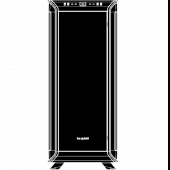I'm running a pfsense VM with a 2port NIC and an Atheros Wifi card passed through.
(I have a slightly unreliable POINT to POINT LTE connection, and occasional mission critical internet requirements - So the Wifi card is set to automatically connect to my cell phone hotspot)
I had trouble getting this Wifi card to work with an error message referencing hostdev1 or something not fitting in BARs.
I searched, I posted, I got a great answer from Ghost82 who translated the info I had found into the xml:
<qemu:commandline>
<qemu:arg value='-set'/>
<qemu:arg value='device.hostdev1.x-msix-relocation=bar2'/>
</qemu:commandline>
</domain>
This, with minimal fiddling (hostdev0 not hostdev1) worked perfectly.
20220220_2240_pfSense - Cerberus.xml
Right up until I updated to RC3.
First the VFIO passthrough changed in System Devices, and then after I re-enabled that it still would not boot the VM.
But now it doesn't refer to any hostdev id... it refers to it as bellow

If I remove the Wifi card the 2 NIC ports get alias' lines, but if I add the Wifi card back in nothing does.
If I edit the xml to give the Wifi card an alias and put the comandline part back in.
I get an error claiming there is no hostdev0

and when I look back in the XML the alias' are all gone.
Ghost82 suggests editing the XML in the cli but I haven't tried that yet. Would it make a difference? Should it?
Has there been some change t the way alias' are handled? I don't understand why they disappear.
Thanks for any help
Arbadacarba


Recommended Comments
Join the conversation
You can post now and register later. If you have an account, sign in now to post with your account.
Note: Your post will require moderator approval before it will be visible.